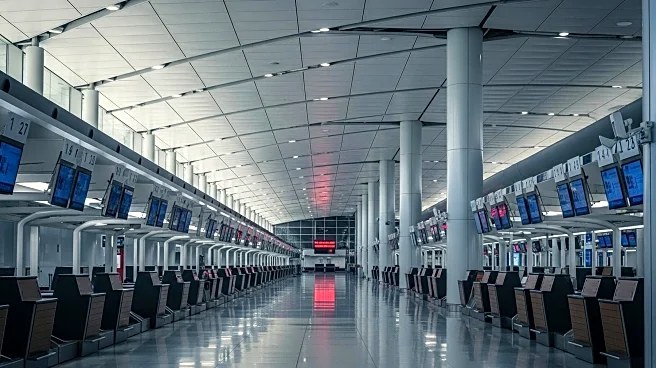What's Happening?
A cyberattack targeted Collins Aerospace, a check-in technology provider, causing disruptions at major European airports including Heathrow, Berlin, and Brussels. The attack affected the MUSE software used for electronic customer check-in and baggage drop, leading to delays and cancellations. Airports have implemented manual check-in operations to mitigate the impact. Brussels Airport has asked airlines to cancel half of Monday's scheduled departing flights due to unresolved issues. The cyberattack has prompted regional regulators to investigate its origin, while Collins Aerospace and its parent company RTX are working to resolve the issue.
Why It's Important?
The cyberattack highlights vulnerabilities in critical infrastructure, emphasizing the need for robust cybersecurity measures in the aviation industry. The disruption affects thousands of passengers, causing delays and cancellations, and underscores the importance of secure and resilient systems for airport operations. The incident serves as a reminder of the growing threat of cyberattacks across various sectors, including transportation, healthcare, and finance. It also raises concerns about the potential impact on international travel and commerce, as airports play a crucial role in global connectivity.
What's Next?
Airports and airlines are expected to continue implementing manual workarounds while Collins Aerospace works on delivering a secure updated version of the affected software. Regional regulators are investigating the cyberattack's origin, which may lead to increased scrutiny and enhanced cybersecurity protocols in the aviation industry. The incident may prompt airports and technology providers to invest in more secure systems and develop contingency plans to prevent future disruptions.










